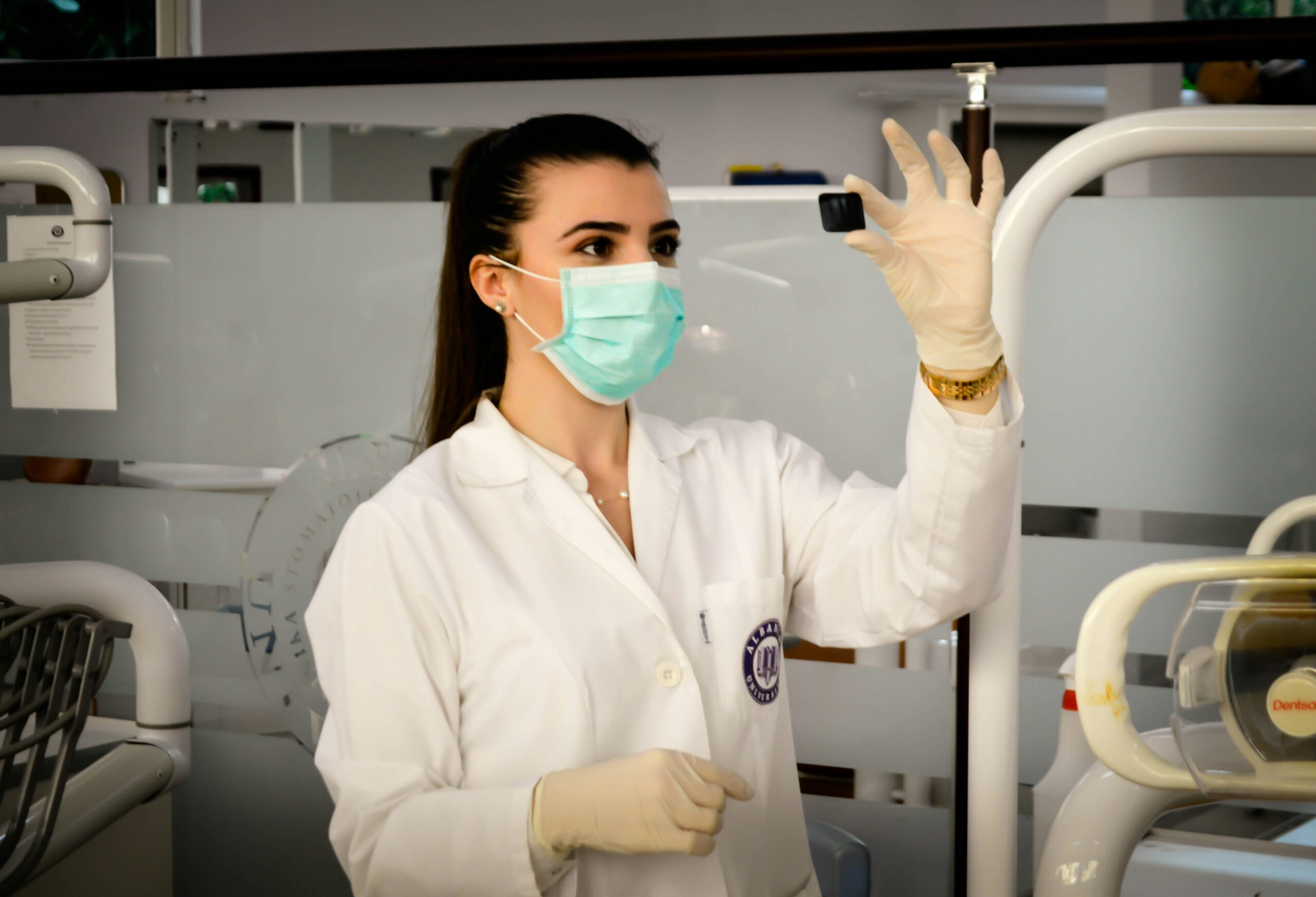In this article, you will explore the fascinating realm of preparedness and uncover the various types that exist. Ever wondered how one can be prepared in different aspects of life? From emergency situations and natural disasters to personal finance and health, preparedness comes in diverse forms. Discover the importance of being ready not only for unexpected events but also for the everyday challenges life throws your way. Fasten your seatbelt as we embark on a journey to explore the world of preparedness and the many ways it can shape our lives. So, are you ready? Let’s dive into the different types of preparedness!
Emergency Preparedness
Understanding Emergency Preparedness
Emergency preparedness refers to the actions and measures taken to effectively respond and handle emergency situations. It involves being prepared for various types of emergencies, such as natural disasters, pandemics, and other unexpected events that could potentially endanger your safety and well-being. By understanding emergency preparedness, you can equip yourself with the necessary knowledge and resources to navigate through challenging situations with confidence.
Examples of Emergency Preparedness
Emergency preparedness can take many forms. It includes having a well-thought-out emergency plan in place, which may involve creating evacuation routes, establishing communication protocols, and identifying safe locations to seek shelter. It also encompasses assembling an emergency supply kit with essential items like food, water, medications, flashlights, and batteries. Additionally, staying informed about potential hazards and developing the skills needed to respond effectively to emergencies are crucial aspects of emergency preparedness.
Emergency Preparedness for Natural Disasters
Natural disasters, such as earthquakes, hurricanes, floods, and wildfires, can strike unexpectedly and cause significant damage. Being prepared for these events can greatly reduce the potential impact on your life. Emergency preparedness for natural disasters involves understanding the risks in your area and taking appropriate actions to mitigate them. This may include securing your home, creating an emergency evacuation plan, and knowing how to access emergency services during and after a disaster.
Emergency Preparedness for Pandemics
In light of recent global health crises, such as the COVID-19 pandemic, it has become increasingly important to be prepared for the potential spread of infectious diseases. Emergency preparedness for pandemics involves staying informed about the latest health guidelines and following them to minimize the risk of infection. It also includes having a supply of essential items, such as masks, hand sanitizers, and non-perishable food, in case of quarantine or restricted movement.
Why is Emergency Preparedness Important?
Emergency preparedness is of utmost importance as it equips you with the tools and knowledge needed to effectively navigate through unexpected and potentially dangerous situations. By being prepared, you can protect yourself, your loved ones, and your property from harm. Emergency preparedness also ensures that you are not caught off guard, allowing you to respond promptly and appropriately in times of crisis, potentially saving lives and minimizing damage.
Financial Preparedness
Understanding Financial Preparedness
Financial preparedness involves taking active steps to ensure that you are financially secure in the face of unexpected events or hardships. It encompasses having a solid understanding of your financial situation, establishing an emergency fund, and making informed decisions regarding savings, investments, insurance, and debt management. By understanding financial preparedness, you can effectively weather financial storms and maintain stability in challenging times.
Examples of Financial Preparedness
Financial preparedness can include various strategies and actions to safeguard your financial well-being. One example is creating an emergency fund, which is a designated amount of money set aside specifically for unexpected expenses or loss of income. Building an emergency fund ensures that you have a safety net to rely on during times of financial strain. Another example is obtaining appropriate insurance coverage to protect your assets, such as homeowner’s or renter’s insurance, health insurance, and life insurance.
How to Improve Your Financial Preparedness
Improving your financial preparedness involves adopting healthy financial habits and making conscious decisions about your money. Start by evaluating your current financial situation and identifying areas of strength and weakness. Create a budget that aligns with your financial goals and allows for savings. Prioritize building an emergency fund by setting small, achievable savings goals. Additionally, consider seeking professional financial advice to ensure you are making informed decisions regarding investments, retirement planning, and debt management.
Why is Financial Preparedness Important?
Financial preparedness is crucial because it provides a sense of security and stability during unforeseen circumstances. It allows you to withstand financial setbacks and minimize the impact they have on your daily life. By being financially prepared, you can avoid falling into debt or facing significant financial hardships when faced with emergencies or unexpected events. Financial preparedness also enables you to focus on your well-being and the well-being of your loved ones without the added stress of financial instability.

Mental Health Preparedness
Understanding Mental Health Preparedness
Mental health preparedness involves prioritizing and taking care of your emotional and psychological well-being in times of stress, crisis, or uncertainty. It encompasses developing coping mechanisms, seeking support systems, and practicing self-care. By understanding mental health preparedness, you can cultivate resilience and better navigate challenging situations without compromising your mental well-being.
Mental Health Preparedness for Stressful Situations
Stressful situations can take a toll on our mental health, and it is important to be prepared to address these challenges. Mental health preparedness for stressful situations involves recognizing and acknowledging stressors, implementing stress-management strategies, and seeking support when needed. This may include practicing relaxation techniques, engaging in physical activity, maintaining healthy relationships, and seeking professional help if necessary.
Mental Health Preparedness for Crisis
During times of crisis, such as natural disasters, pandemics, or personal tragedies, mental health preparedness becomes even more crucial. It involves being aware of the potential psychological impact of such events and taking proactive steps to protect and support your mental well-being. This may include staying connected with loved ones, seeking counseling or therapy services, practicing mindfulness or meditation, and engaging in activities that bring you joy and a sense of normalcy.
Why is Mental Health Preparedness Important?
Mental health preparedness is important because it allows you to maintain emotional well-being and resilience during challenging times. By being mentally prepared, you can effectively cope with stress, manage your emotions, and adapt to new situations. Mental health preparedness also enables you to support others who may be struggling and foster a sense of collective well-being within your community. Ultimately, prioritizing mental health preparedness can lead to improved overall well-being and a more positive outlook on life.
Technological Preparedness
Understanding Technological Preparedness
Technological preparedness involves being prepared for potential technological failures or disruptions, such as cyber attacks or data loss. It encompasses safeguarding your digital resources, understanding potential risks, and implementing preventive measures to mitigate the impact of technological emergencies. By understanding technological preparedness, you can protect your personal information, maintain the functionality of your devices, and minimize the potential consequences of technological failures.
Technological Preparedness for Cyber Attacks
Cyber attacks are increasingly prevalent in today’s digital landscape, and being prepared for such events is essential. Technological preparedness for cyber attacks involves securing your online accounts, employing strong and unique passwords, using antivirus software, and staying informed about the latest cybersecurity threats. Regularly backing up your important data and being cautious when sharing personal information online can also help minimize the risk of falling victim to cyber attacks.
Technological Preparedness for Data Loss
Data loss can occur due to various reasons, including hardware failures, software glitches, or accidental deletion. Technological preparedness for data loss involves regularly backing up your important files and storing them securely. This can be done through external hard drives, cloud storage services, or other backup solutions. Having a reliable backup system in place ensures that you can recover your data in case of unforeseen technological failures or accidents.
Why is Technological Preparedness Important?
Technological preparedness is important because it allows you to protect your digital assets and maintain the integrity of your personal information. By being technologically prepared, you can minimize the risk of falling victim to cyber attacks, prevent data loss, and ensure the smooth functioning of your devices and online accounts. Technological preparedness also enables you to navigate the digital world with confidence and utilize technology to its full potential without compromising your privacy or security.

Educational Preparedness
Understanding Educational Preparedness
Educational preparedness involves being prepared for changes and challenges in the educational landscape. It encompasses adapting to new learning methods, staying informed about educational resources, and actively engaging in lifelong learning. By understanding educational preparedness, you can adapt to evolving educational environments and equip yourself with the skills and knowledge necessary for personal and professional growth.
Educational Preparedness for Distance Learning
Distance learning has become increasingly prevalent, especially in times of crises or situations that require remote education. Educational preparedness for distance learning involves ensuring access to necessary technology and internet connectivity, creating a conducive learning environment, and staying organized and disciplined in managing your studies. It also includes effectively utilizing online resources, participating in virtual classrooms, and seeking additional support when needed.
Educational Preparedness for New Learning Methods
As educational methods evolve, it is important to be prepared to adapt to new approaches and tools. Educational preparedness for new learning methods involves being open-minded and embracing lifelong learning. This may include seeking out new educational opportunities, engaging in professional development, and actively staying informed about the latest trends and innovations in education. Being prepared for new learning methods enables you to continually enhance your knowledge and skills, positioning you for success in various educational settings.
Why is Educational Preparedness Important?
Educational preparedness is important because it allows you to thrive in different learning environments and adapt to evolving educational landscapes. By being educationally prepared, you can take advantage of educational opportunities, pursue personal and professional development, and embrace lifelong learning. Educational preparedness also equips you with the skills and knowledge necessary to navigate changing job markets, pursue new career paths, and contribute meaningfully to society.
Health and Fitness Preparedness
Understanding Health and Fitness Preparedness
Health and fitness preparedness involves prioritizing and maintaining physical well-being, as well as taking proactive steps to prevent diseases and injuries. It encompasses adopting healthy lifestyle habits, staying physically active, and seeking regular medical care. By understanding health and fitness preparedness, you can enhance your overall well-being and minimize the risk of potential health complications.
Health and Fitness Preparedness for Physical Demands
In order to meet the physical demands of life and potential emergencies, it is important to be physically prepared. Health and fitness preparedness for physical demands involves engaging in regular physical activity, maintaining a balanced diet, getting adequate rest, and managing stress. By staying physically fit and healthy, you can build endurance, enhance your strength, and improve your overall ability to handle physical challenges.
Health and Fitness Preparedness for Disease Prevention
Preventing diseases is a crucial aspect of health and fitness preparedness. It involves adopting preventive measures such as getting vaccinated, practicing good hygiene, and prioritizing regular medical check-ups and screenings. It also includes maintaining a healthy immune system through a balanced diet, sufficient sleep, and stress management. By prioritizing disease prevention, you can reduce the risk of illnesses and minimize their impact on your overall health and well-being.
Why is Health and Fitness Preparedness Important?
Health and fitness preparedness is important because it allows you to maintain optimal physical well-being and enhance your overall quality of life. By being prepared, you can prevent potential health complications, improve your physical performance, and effectively respond to physical demands or emergencies. Health and fitness preparedness also promotes a positive mindset, increases resilience, and fosters a sense of empowerment in taking control of your own health.

Workplace Preparedness
Understanding Workplace Preparedness
Workplace preparedness involves being prepared for potential emergencies or changes in the work environment. It encompasses understanding workplace hazards, having an emergency plan, and adapting to evolving job demands. By understanding workplace preparedness, you can ensure your safety, maintain productivity, and navigate career transitions effectively.
Workplace Preparedness for Emergencies
Being prepared for emergencies in the workplace is essential for personal safety and the well-being of colleagues. Workplace preparedness for emergencies involves familiarizing yourself with emergency procedures, such as evacuation routes and assembly points. It may also include receiving training on first aid and CPR, as well as understanding how to use emergency equipment. Being prepared for workplace emergencies enables you to respond promptly and appropriately, potentially saving lives and minimizing injuries.
Workplace Preparedness for Job Changes
In today’s dynamic work environment, being prepared for job changes is vital. Workplace preparedness for job changes involves staying adaptable and acquiring transferable skills that can enhance your employability. It may also include networking and building professional connections, actively seeking professional development opportunities, and staying up-to-date with industry trends. By being prepared for job changes, you can confidently navigate career transitions and seize new opportunities.
Why is Workplace Preparedness Important?
Workplace preparedness is important because it ensures your safety, productivity, and long-term employability. By being prepared, you can effectively respond to workplace emergencies, protect yourself and others, and minimize potential disruptions to business operations. Workplace preparedness also enhances your professional growth and adaptability, allowing you to stay competitive in the job market and navigate career changes successfully.
Communication Preparedness
Understanding Communication Preparedness
Communication preparedness involves being prepared to effectively communicate in various scenarios and maintain healthy relationships. It encompasses developing strong communication skills, understanding different communication styles, and adapting to changing communication methods. By understanding communication preparedness, you can build meaningful connections, resolve conflicts, and navigate interpersonal interactions with confidence.
Communication Preparedness for Different Scenarios
Being prepared to communicate in different scenarios is essential for effective interpersonal relationships. Communication preparedness for different scenarios involves being mindful of your verbal and non-verbal communication, actively listening to others, and adapting your communication approach to suit the context. It may also include developing empathy and emotional intelligence to better understand and respond to the needs of others. By being prepared to communicate in different scenarios, you can foster positive connections and avoid misunderstandings or conflicts.
Communication Preparedness for Relationships
Maintaining healthy relationships requires effective communication. Communication preparedness for relationships involves building trust, expressing oneself clearly and respectfully, and actively working on resolving conflicts. It also includes being open-minded, empathetic, and willing to compromise when necessary. By being prepared to communicate in relationships, you can foster understanding, strengthen relationships, and cultivate a supportive network of people in your life.
Why is Communication Preparedness Important?
Communication preparedness is important because it plays a vital role in our personal and professional lives. By being prepared, you can prevent misunderstandings, resolve conflicts peacefully, and foster strong relationships with others. Communication preparedness also promotes effective teamwork, collaboration, and leadership, enabling you to navigate various social and professional situations with ease. Ultimately, being prepared to communicate empowers you to express yourself effectively and build meaningful connections with others.

Food and Water Preparedness
Understanding Food and Water Preparedness
Food and water preparedness involves having access to an adequate supply of nutritious food and clean water in case of emergencies or disruptions in supply. It encompasses having a well-stocked pantry, practising safe food storage, and understanding water purification methods. By understanding food and water preparedness, you can ensure that you and your loved ones have access to essential sustenance during challenging times.
Food and Water Preparedness in the Home
Being prepared with food and water supplies in your home is essential in case of emergencies or unexpected situations. Food and water preparedness at home involves stocking up on non-perishable food items such as canned goods, dried fruits, and grains. It also includes maintaining a supply of bottled water or having water purification methods like water filters or purification tablets. Regularly checking and rotating your food and water supplies ensures freshness and readiness for any potential emergencies.
Food and Water Preparedness for Emergencies
During emergencies, access to food and water may be limited or disrupted, making preparedness crucial. Food and water preparedness for emergencies involves having an emergency food supply kit and water storage specifically designated for emergency situations. This may include meal-ready-to-eat (MRE) packs, energy bars, and water containers. It is important to consider the nutritional value and expiration dates of the food items, as well as regularly replenishing your supplies to ensure readiness during unforeseen events.
Why is Food and Water Preparedness Important?
Food and water preparedness is important because it ensures that you and your loved ones have access to vital resources during emergencies or disruptions in supply chains. By being prepared, you can sustain your nutritional needs and minimize the potential impact of food and water shortages. Food and water preparedness also provides peace of mind and a sense of security, enabling you to focus on other important aspects of emergency preparedness without the added stress of food and water scarcity.
Travel Preparedness
Understanding Travel Preparedness
Travel preparedness involves being well-prepared and informed when embarking on different types of journeys, be it domestic or international. It encompasses understanding travel risks, planning for potential emergencies, and taking necessary precautions to ensure a safe and enjoyable trip. By understanding travel preparedness, you can minimize travel-related uncertainties and safeguard your well-being during your adventures.
Travel Preparedness for International Trips
Going on international trips requires careful planning and preparation. Travel preparedness for international trips involves researching and understanding the destination’s culture, customs, and potential health risks. It may include obtaining necessary travel documents, such as passports and visas, and registering with relevant embassy or consulate services. Planning for travel insurance and having a comprehensive itinerary can also contribute to a smooth and safe international travel experience.
Travel Preparedness for Road Trips
Road trips offer exciting adventures, and being prepared is important for a successful journey. Travel preparedness for road trips involves conducting vehicle maintenance and ensuring it is in good working condition. It also includes mapping out your route, identifying rest stops and accommodations, and having emergency provisions like spare tires, a first aid kit, and roadside assistance contacts. Understanding the local traffic regulations and weather conditions along your road trip route is also essential to ensure a safe and enjoyable experience.
Why is Travel Preparedness Important?
Travel preparedness is important because it contributes to the overall safety and comfort of your journeys. By being prepared, you can minimize potential travel disruptions, navigate unfamiliar environments, and respond effectively to unexpected situations. Travel preparedness also enhances your travel experiences, allowing you to fully immerse yourself in the destination and make the most of your adventures. Ultimately, being prepared while traveling enables you to focus on creating cherished memories and exploring new horizons.
In conclusion, preparedness in various aspects of life is crucial to ensure your safety, well-being, and ability to navigate unforeseen events or challenges with confidence. Whether it is emergency preparedness, financial preparedness, mental health preparedness, technological preparedness, educational preparedness, health and fitness preparedness, workplace preparedness, communication preparedness, food and water preparedness, or travel preparedness, each domain requires attention and proactive actions to be adequately prepared. By understanding and implementing the necessary strategies for preparedness in these areas, you can enhance your resilience, protect yourself and your loved ones, and thrive in various aspects of your life.


